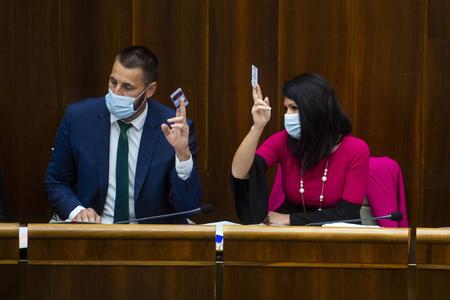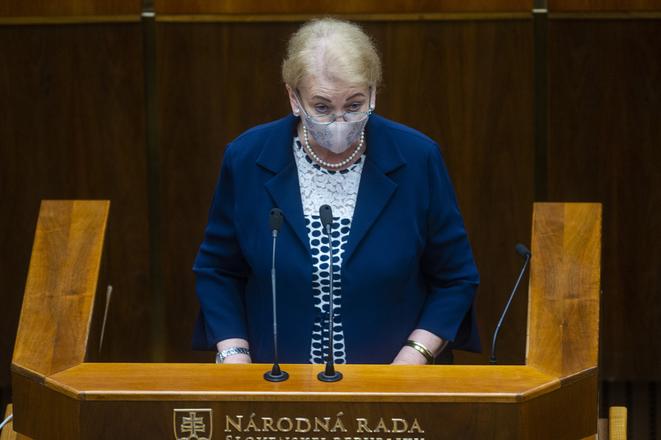The rules for abortions in Slovakia will not change for now.
The parliament failed to adopt the amendment to the law on health care, submitted by MP Anna Záborská of the Ordinary People and Independent Personalities (OĽaNO), which had been criticised by many organisations in Slovakia and also abroad.
Only 58 of 117 MPs presented supported the proposed changes on October 20.

What the law proposed
The amendment wanted to change the term “artificial suspension of pregnancy” to “artificial end of pregnancy”, and also doubling the time between requesting and performing an abortion to 96 hours.
It further proposed a more detailed collection of data about the reasons for an abortion, requiring a compulsory second medical opinion paid by health insurance, providing accommodation for pregnant women who want to give birth secretly along with their children, and introducing a financial contribution during pregnancy and higher allowance for a disabled child.
The legislators also turned down the amending proposal of Jana Bittó Cigániková of Freedom and Solidarity (SaS), who wanted to implement the use of the so-called abortion pill in the law, and proposed to pay sickness benefit to women who opt for secret childbirth, the TASR newswire reported.

Záborská wants to submit a new proposal
The proposed changes have been criticised by Slovak and international human rights organisations, which have been calling on Slovak MPs to not limit reproductive rights in Slovakia.
Responding to the result of the October 20 vote, the Council of Europe’s Commissioner for Human Rights, Dunja Mijatovic, called the rejection of the proposal “great news”.
“The efforts of those who stood up for women’s rights have paid off and prevented another attempt to roll back sexual and reproductive health and rights,” Mijatovic said. “Further attempts would be unacceptable.”
Bittó Cigániková thanked everybody who stood up for women and prevented their rights from being restricted. She expressed hope that a similar proposal would not be submitted soon, as reported by the SITA newswire.
However, Záborská already wrote on Facebook that she is ready to submit this proposal again in six months.



 MP Anna Záborská (source: TASR)
MP Anna Záborská (source: TASR)